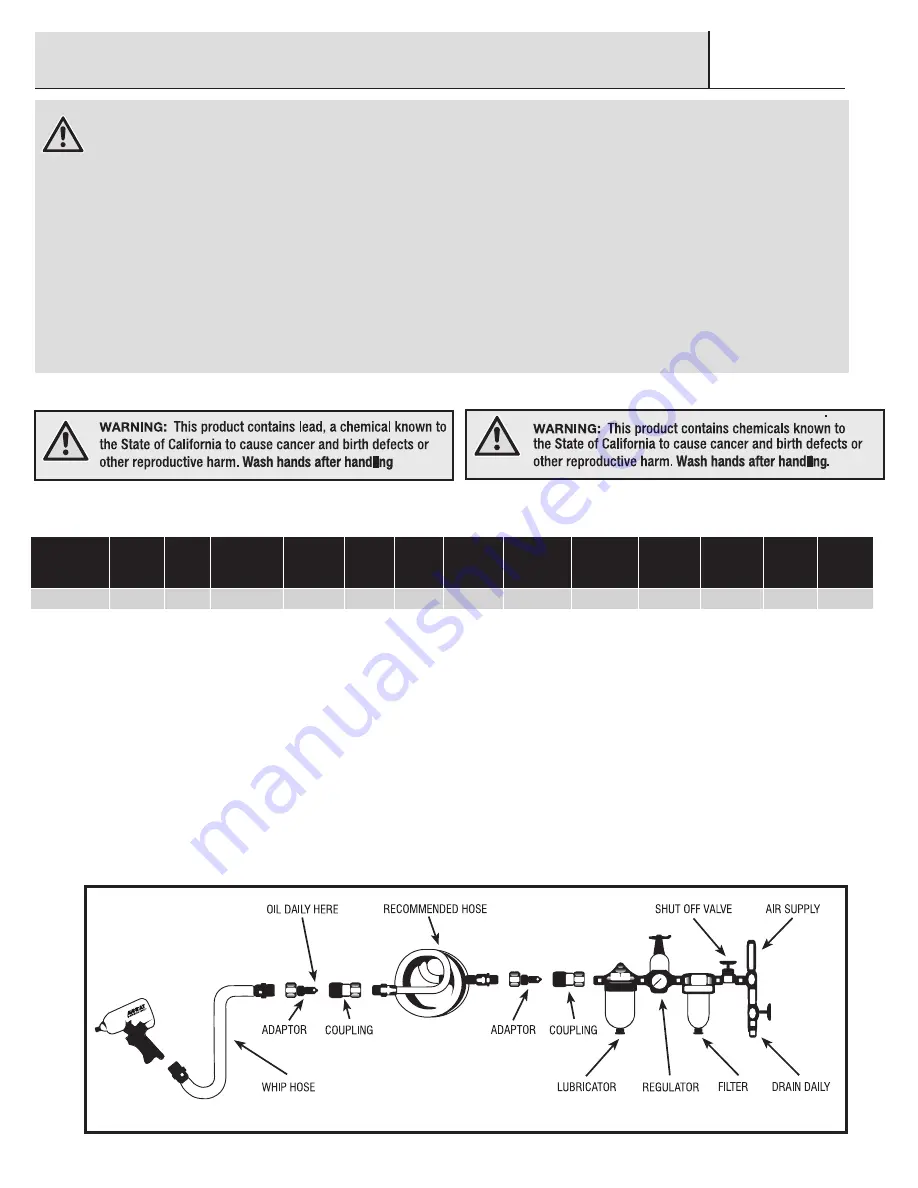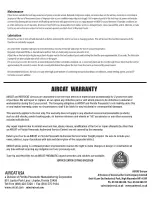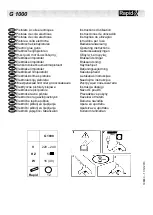
SPECIFICATIONS
Important Warnings - Sanders & Polishers
1. Eye protection, safety gloves and safety aprons must always we worn when operating a sander or
polisher.
2. Never adjust the sander or polisher or change the backing pad, sanding disc, sanding belt or
polishing bonnet unless the air supply and air hose is disconnected from the tool
3. Only use backing pads and polishing backing pads that have a rated speed then same as the sander
or polisher or higher.
4. Never attempt to modify or adapt a sander or polisher for use with a grinding wheel or cut-off wheel
or wire brush.
5. Only personnel trained in the correct methods to change pads, sanding discs, sanding belts and
polishing bonnets should conduct these operations.
Tools of this class operate on a wide range of air pressure. It is recommended that air pressure of these tools measures 90 PSI at the tool while running free. Higher
pressure and unclean air will shorten the tool’s life because of faster wear and may create a hazardous condition and void the warranty. Water in the air line will
cause damage to the tool. Drain the air tank daily. Clean the air inlet filter screen on at least a weekly schedule. The recommended hookup procedure can be viewed
in the illustration below. The air inlet, used for connecting air supply, has standard 1/4” NPT American Thread. Line pressure should be increased to compensate for
unusually long air hoses (over 25 feet). Minimum hose diameter should be 3/8” I.D. and fittings should have the same inside dimensions.
Air Supply
Model No.
Pad Size
(in)
Orbit
(in)
Pad Type
No.
Vacuum
Pad Holes
Free
Speed
(RPM)
Weight
(lbs)
Length w/
Pad Fitted
(in)
Width w/
Pad Fitted
(in)
Height w/
Pad Fitted
(in)
Noise Level
d(B)A
Vibration
m/sec2
Average
Air (CFM)
Air Inlet
(in.) NPT/
BSP
6700-5-336
5
3/16
Hook & Loop
0
11,000
2.0
6.7
5.0
4.3
75
0.8
1.6
1/4
Summary of Contents for 6700-5-336
Page 1: ...MODEL 6700 5 336 5 Orbital Palm Sander...
Page 4: ......















